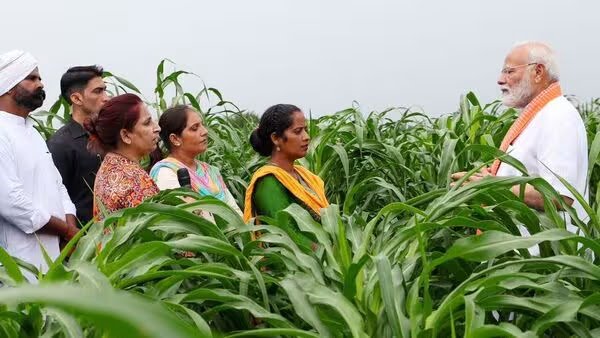
In a significant step towards enhancing agricultural sustainability, Prime Minister Shri Narendra Modi today released 109 new high-yielding, climate-resilient, and biofortified crop varieties at the India Agricultural Research Institute (IARI) in New Delhi. This release included 34 field crops, such as millets, oilseeds, and pulses, and 27 horticultural crops, including fruits, vegetables, and medicinal plants.
During the event, PM Modi interacted with farmers and scientists, emphasizing the critical role of value addition in agriculture. He pointed out that these innovative crop varieties would not only help farmers reduce their expenditures but also have a beneficial impact on the environment. Farmers expressed their optimism, noting that these new varieties would be highly advantageous in terms of cost savings and environmental benefits.
The Prime Minister also discussed the growing trend toward nutritious and organic foods, particularly millets, and underscored the benefits of natural farming. He highlighted the increasing demand for organic foods and the public’s growing trust in natural farming practices. The farmers lauded the government’s efforts in promoting these sustainable farming methods and acknowledged the crucial role played by Krishi Vigyan Kendras (KVKs) in raising awareness about the benefits of these new crop varieties.
PM Modi also commended the scientists involved in developing these varieties, noting that their work aligns with his earlier suggestion to bring underutilized crops into the mainstream. This effort aims to expand the diversity and resilience of Indian agriculture, ensuring that farmers can adapt to changing climate conditions and market demands.
The 109 crop varieties released by the Prime Minister are expected to play a pivotal role in boosting agricultural productivity and sustainability across the country. These varieties include seeds for cereals, forage crops, oilseeds, pulses, sugarcane, cotton, and other potential crops, as well as various horticultural crops like fruits, vegetables, spices, and medicinal plants.